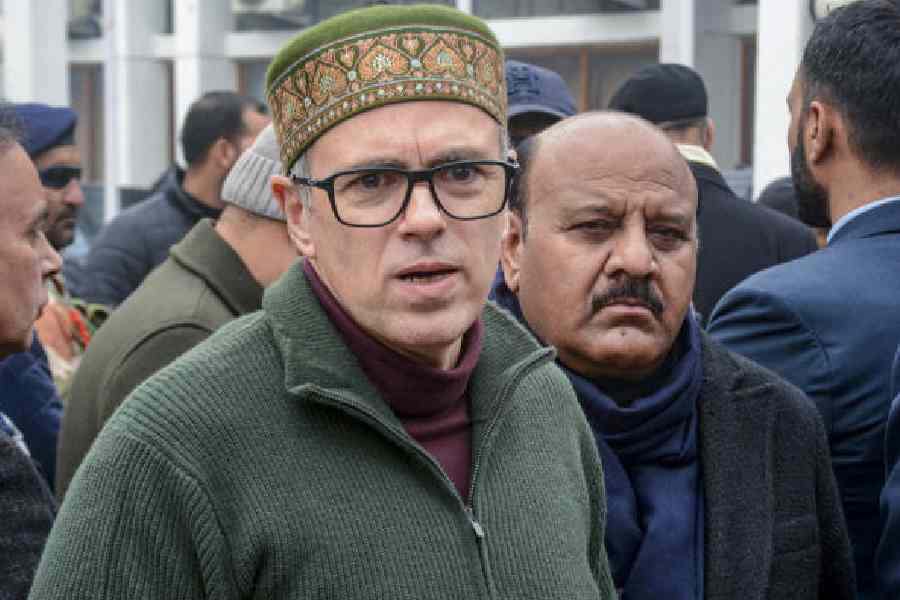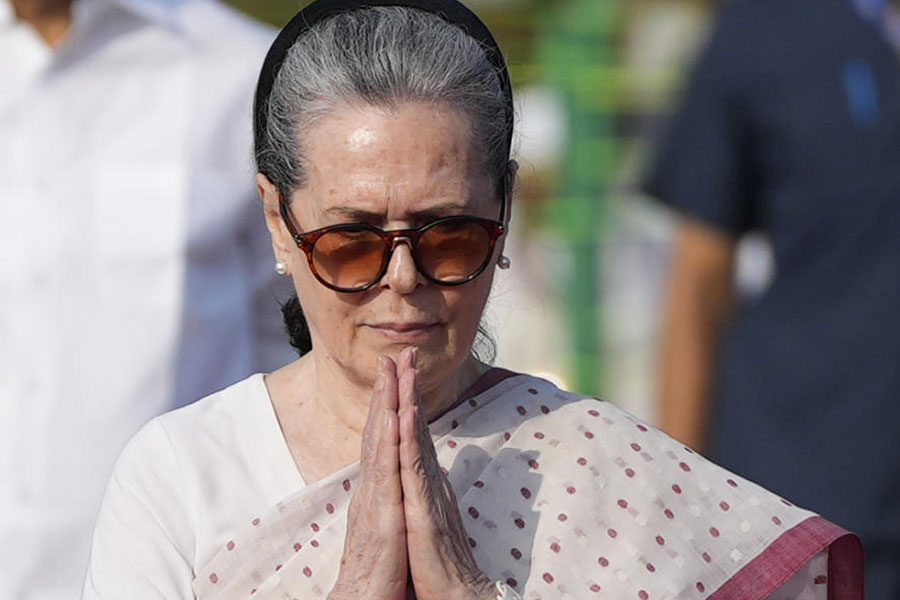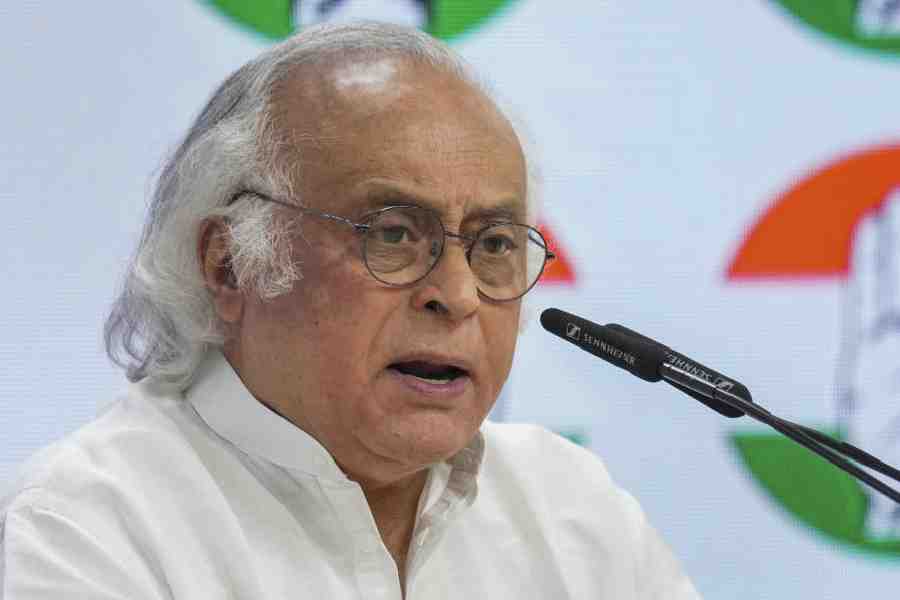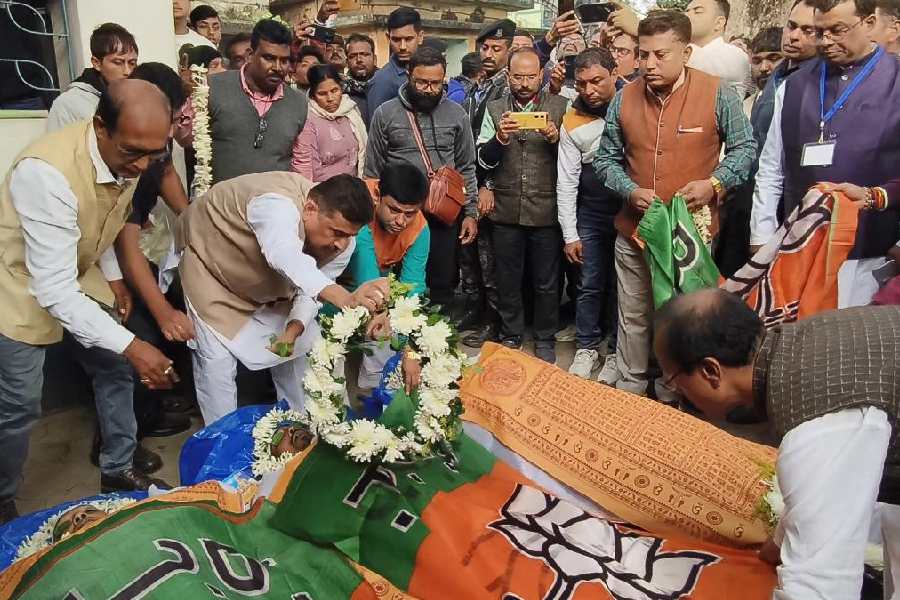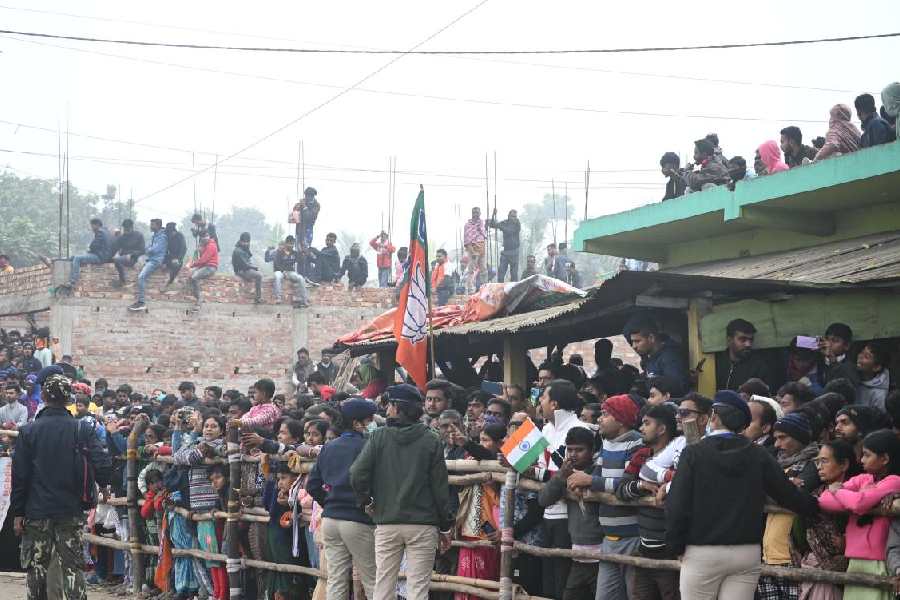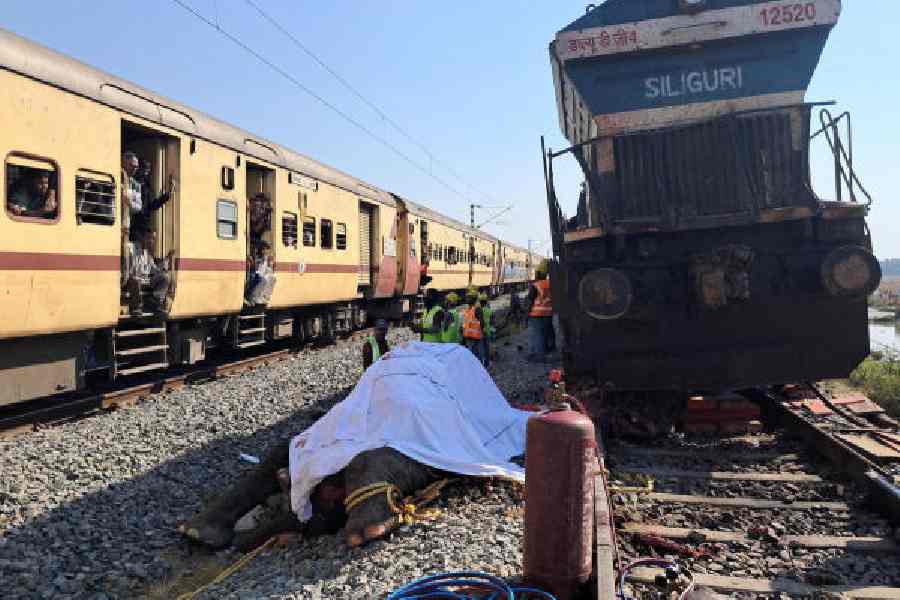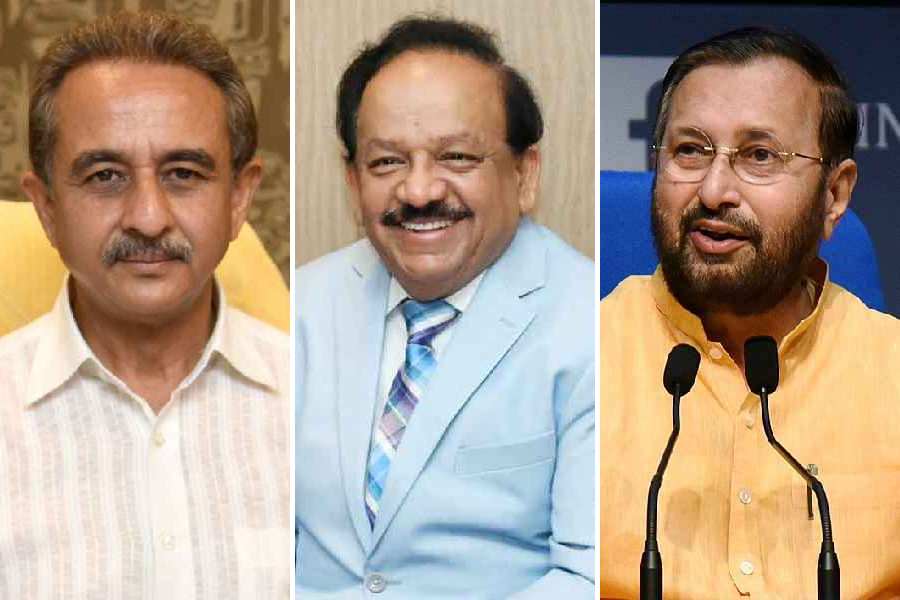 |
He had been in the NDA-I ministry, but stepped down as he felt ignored by the Nitish Kumar government in some decision-making policies. Now, as the rural development minister in the NDA-II cabinet, Nitish Mishra focuses on ways to make rural schemes more transparent. In an interview with Anand Raj, Mishra says besides streamlining the rural job scheme and getting rid of middlemen standing between the government’s plans and its targeted beneficiaries, his biggest task is to prepare an error-free list of below-poverty-line people
Govt stand on job scheme graft
There are allegations of corruption in the implementation of Mahatma Gandhi National Rural Employment Guarantee Act (MNREGA). What do you have to say?
The execution of MNREGA, which is a job-oriented scheme, lies with the panchayati raj institutions. This is a demand-driven scheme where people have to get registered with the panchayats to seek jobs and the panchayats have to decide who will get the job. The state government has no direct role in it. The government’s role is that of a facilitator. It can at the most monitor the scheme.
Don’t you think that the government, as a facilitator or a monitor, has something to do to stop corruption?
I admit that there have been irregularities in the implementation of the scheme. We have come across several complaints and are taking measures to correct the prevailing system. Our aim is to make it more transparent and accountable.
‘Job plans to be transparent’
How do you plan to bring in transparency?
Ever since the scheme was launched in the state, a meeting of all gram sabhas at the panchayat level (8,442 panchayats) was held on October 2, 2011. The meeting had passed all the projects that were to be implemented in 2012-13. All these schemes would be put on the website after they get technical, administrative and financial sanction. This implies that the schemes that were passed by the gram sabhas would be implemented next year. Besides, instructions have been given to district-level officers to make a weekly visit to the panchayats and the blocks to verify the schemes of MNREGA and Indira Awas Yojana (IAY), the two flagship programmes meant for the rural people. This would not only make the schemes more transparent, but would also help in curbing corruption to some extent.
‘Bihar-specific training model’
Your department is also planning to provide some kind of training to MNREGA officials.
Yes, we would soon start providing training to about 30,000 MNREGA officials and functionaries through Bihar Institute of Public Administration and Rural Development (BIPARD). MNREGA officials and functionaries — programme officers, zilla panchayat members, block-level officials, mukhiyas, ward members and panchayt rozgar sahayaks — would undergo training sessions for three to five days at the district, block and panchayat level over the next five to six months. The training programme would facilitate awareness and enhancement of knowledge of the MNREGA Act and Bihar-specific implementation processes to improve their efficiency.
You mentioned about IAY scheme. But complaints of irregularities and corruption have mired the programme.
It is true that IAY, under which Rs 45,000 is given to a BPL family to build a pucca house, was in the clutch of middlemen. As a result, a genuine beneficiary had to face problems in receiving funds. Officials often harassed the beneficiaries while finding out if the latter met necessary guidelines to avail the benefits. But following a directive of chief minister Nitish Kumar, our department has removed the procedure of inquiry. Now people have to only furnish affidavits to avail the benefits.
‘Miles to go before I sleep...’
What is the one thing that you would like to achieve in near future?
Miles to go before I sleep…There is plenty of work to be done, but my biggest task would be the preparation of an error-free below poverty line (BPL) list. The list is the basic data on which budgetary allocations for various welfare schemes are made. The work for the preparation of list is on since December 15, 2011.
Planning Commission adviser N.C. Saxena recently criticised the state government for its failure to utilise funds meant for welfare schemes like MNREGA and IAY
The amounts meant for the schemes have to be spent through the panchayati raj institutions or urban local bodies. The state’s capacity to spend is growing day by day. A person has to be provided with 100 days of work under MNREGA scheme. But the national average is 52 days and Bihar’s average stood at 32 in 2010-11. Our target is to increase the workdays to 50 this year. Bihar would be miles ahead of other states in terms of the scheme.
But Saxena said the government could spend only Rs 2600 crore as against the target of Rs 44,00 crore in the 2010-11. How would you achieve the target?
There is a system of utilising the funds because MNREGA is a demand-driven scheme. If people don't ask for job, the funds would not be utilised. We are trying our best to improve the situation. As far as Saxena’s charge is concerned, there is an estimated labour budget under which a particular sum has to be spent. The labour budget at the national level has gone down from last year’s Rs 44,000 crore to Rs 32,000 crore this year. As against the state’s labour budget of Rs 3,400 crore in this fiscal, we could spend Rs 1,800 crore
You had resigned from the Nitish cabinet during the first tenure of the NDA government. You had then alleged that the government was ignoring you in the decision making process. What suddenly prompted Nitish Kumar to induct you in his second council of ministers?
Yes, I was disturbed with the functioning of the department and probably I had also lost my trust in my leader (Nitish Kumar). I am a great admirer of Nitishji and vouch for his ability to work hard. He inducted me into his cabinet again after seeing my work.
‘A lot happened in six years’
It has been alleged that the NDA government has not been able to propel industrial and agricultural growth in its six years of tenure.
This is not the reality. A lot has happened in six years. Industries, agriculture and power are the priority areas for the government. Closed sugar factories have reopened and new units have come up in the state. Besides, food processing units have forayed into the state. But no investment would come unless and until there is basic infrastructure, particularly power, in the state. Thermal power plants take time for commissioning. The construction of NTPC unit in Barh has been going on for about 10 years and would take another couple of more years. But in the next three-four years, power would no more be a problem area as many plants would get commissioned by then. The government's eagerness to tide over the power situation could be gauged from the fact that the state is purchasing power from the open market.
About Nitish Mishra
Born on July 9, 1973, Mishra is the son of seasoned politician and three-time Bihar chief minister
Dr Jagannath Mishra. He did his Matriculation from Patna’s prestigious St Michael’s High School. He completed his graduation (honours) from Delhi University in 1994. Later, he got an MBA degree from FORE School of Management, New Delhi and Maastricht School of Management, the Netherlands in 1995. Mishra also got a postgraduate diploma in global political economy from the University of Hull, the UK, in 1998. A three-time MLA, Mishra was elected to the 13th, 14th and 15th Assemblies. He held the position of the minister of state (independent charge) from November 2005 to April 2008 during the NDA-I regime. As the disaster management minister, Mishra spearheaded relief operations for over three million people marooned by the devastating Kosi floods in five districts in 2008. He later resigned from the cabinet on the ground that he was being ignored in decision making. He was again inducted in the cabinet as the minister for rural development in November 2010. He was voted Pepsi MTV Youth Icon (Young Achievers) 2008 among more than 8,000 national entrants. He has also written two books — Essays in Political Economy: A Global Perspective and External Alienation and Internal Apathy: An Analysis of Bihar’s Backwardness.
If not a politician, what would you have been?
A social entrepreneur. Before joining politics, I had started a company in Delhi to bring a change in society through innovative solutions.
‘Our aim is to get rid of middlemen’
People allege that money is asked for before funds are sanctioned for welfare schemes.
The state government had on August 27 last year organised special camps in all blocks to distribute passbooks to about 5.82 lakh targeted beneficiaries (of the scheme) to provide them with the first
installment of Rs 30,000 on a single day. About Rs 1,800 crore was transferred that day itself. This has never happened in the past. A similar exercise was carried out on January 11 this year to distribute passbooks to the remaining 1.55 lakh targeted beneficiaries. The aim is to get rid of middlemen.


